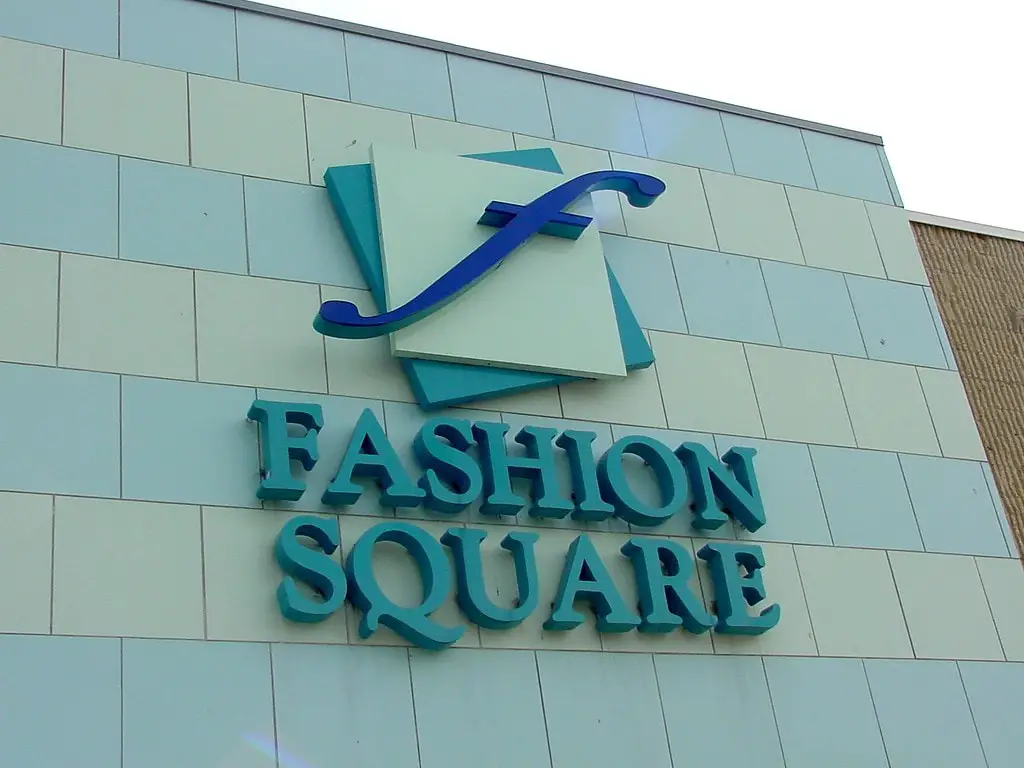Early Development and Opening
Richard E. Jacobs Group developed Fashion Square Mall in the early 1970s. The group aimed to create a modern retail hub on 71 acres of farmland in northern Saginaw Township, Michigan.
Construction took place over several years, focusing on maximizing retail space and variety. The architectural design emphasized an expansive, enclosed shopping environment.
Fashion Square Mall officially opened on October 4, 1972. The mall's debut featured JCPenney and Sears as the primary anchor stores, drawing in a large crowd.
Other initial retailers included Town & Country Fashions, Bintz Sports, Seitner's, William C. Wiechmann Co., Alfano's Stride Rite, Carter Shop, and Tait's Hobby Shop.
The opening of Fashion Square Mall provided a new shopping destination for residents and significantly impacted the local economy. The presence of popular stores and a diverse range of retailers quickly made the mall a central hub for commerce in the area.
Things to do in Saginaw, MI, now included visiting this expansive retail space, which attracted shoppers from all over the region.
Expansion and Tenant Changes
Hudson's joined the mall as a third major anchor in 1976, expanding the shopping options. The addition of this Detroit-based chain boosted the mall's appeal.
In the early years, the mall also housed local department stores like William C. Wiechmann Co. and Heavenrich's. Wiechmann's eventually liquidated in 1992, marking the end of an era for the store.
In 1981, the mall was involved in a legal dispute involving the lease of a Big Boy restaurant. This lawsuit highlighted some of the challenges mall management faced in maintaining tenant agreements.
Throughout the 1980s and 1990s, the mall saw several changes in its retail lineup. New stores moved in, while some original tenants left. This period of change kept the mall dynamic and responsive to retail trends.
Fashion Square Mall continued to evolve with the retail landscape, adapting to shifts in consumer preferences and economic conditions.
These expansions and tenant changes played a crucial role in keeping the mall relevant in a competitive market.
Renovations and Market Adjustments
In 2001, Fashion Square Mall underwent a $10 million renovation. This project included new seating areas, family restrooms, and automatic doors, making the mall more accessible and comfortable for shoppers.
The renovations also introduced new retail experiences that reflected modern shopping trends.
Hudson rebranded itself as Marshall Field's in 2001 due to changes in its parent company, Target Corp.
This change didn't last long; by 2006, Marshall Field's became Macy's, aligning with the broader consolidation in the retail industry.
Dunham's Sports left the mall in the early 2000s. Steve & Barry's took its place in 2005, but it closed in December 2008 after the chain declared bankruptcy. The mall had to adjust quickly to these changes, finding new tenants to fill the spaces left vacant.
In January 2010, JCPenney added a Sephora cosmetics store as part of its remodel, enhancing its appeal to shoppers.
The mall also welcomed Dressbarn and Maurices in 2011, expanding its fashion offerings. An H&M store opened in the fall of 2016, adding to the mall's roster of popular retail brands.

Decline and Ownership Changes
In January 2001, CBL & Associates Properties Inc. purchased Fashion Square Mall from its original developer, Richard E. Jacobs Group.
This transaction was part of a larger deal involving 20 other regional malls and two shopping centers, totaling $1.2 billion.
Foot traffic at Fashion Square Mall started to decrease in recent decades.
This decline mirrored broader trends in the retail industry, with more people shopping online and fewer visiting brick-and-mortar stores. The local economy's challenges also contributed to this downturn.
The mall changed hands again in July 2016 when Namdar Realty Group acquired it. They bought Fashion Square Mall and The Lakes in Muskegon for $66.5 million.
This price included taking over a $38.2 million loan secured by the mall.
In 2020, Namdar Realty Group defaulted on $34.8 million in mortgage debt owed to Wells Fargo.
The property went into foreclosure, and Wells Fargo took possession. The bank then listed the mall for auction, leading to another ownership change.
Recent Developments and Purchases
On August 24, 2022, Kohan Retail Investment Group bought Fashion Square Mall in an online auction for $10.8 million.
The purchase marked the mall's fourth ownership change. Kohan Retail Investment Group has a history of acquiring distressed malls and revitalizing them.
The sale came just before the mall's 50th anniversary. The new owners did not immediately share their plans for the property, but local leaders expressed optimism.
They hoped Kohan would invest in the mall and attract new tenants.
In the meantime, the mall continued to operate, with Macy's and JCPenney remaining as anchor stores. The old Sears location, now owned by Transformco, stayed vacant but was up for sale.
Community leaders planned to meet with Kohan Retail Investment Group to discuss potential improvements and incentives to help make the mall a thriving retail hub again.
This recent sale and the potential for new investment brought a sense of renewal to Fashion Square Mall. Local businesses and shoppers awaited the changes that could breathe new life into this long-standing shopping destination.

Fashion Square Mall: Future Prospects and Plans
With Kohan Retail Investment Group now at the helm, Fashion Square Mall's future looks promising. Kohan has a track record of revamping distressed malls, and local leaders are eager to collaborate on revitalization efforts.
Several vacant spaces within the mall present opportunities for new stores and businesses. The former Sears location, for example, is up for sale, offering a prime spot for potential investors.
Filling these spaces with popular retailers or entertainment options could draw more visitors and boost the mall's appeal.
Looking ahead, the goal is to transform Fashion Square Mall into a modern, bustling shopping destination.
This involves updating facilities, attracting diverse tenants, and enhancing the overall shopping experience.
With the right investments and community support, Fashion Square Mall can once again thrive and serve as a key commercial hub for Saginaw and beyond.
